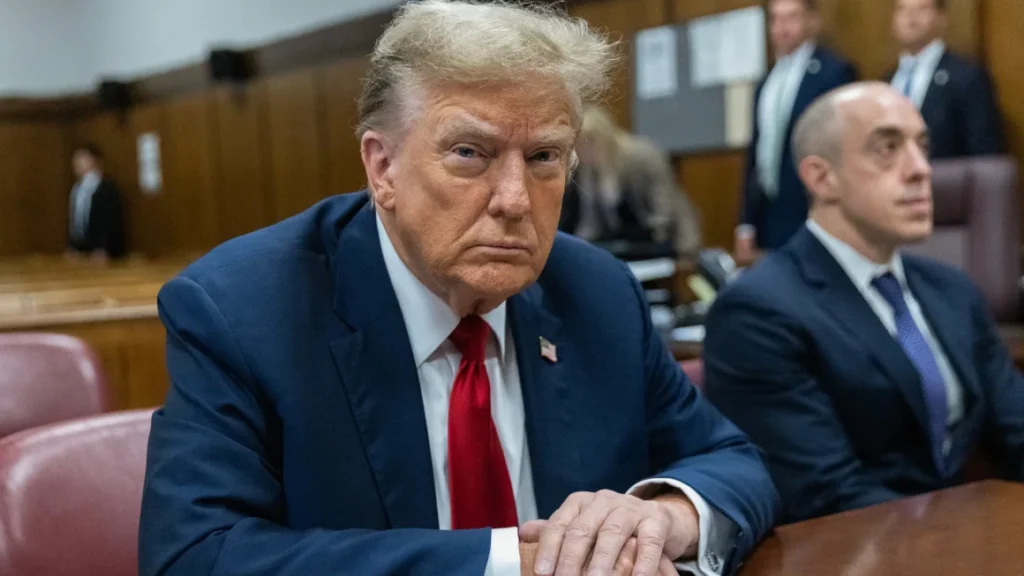In a significant legal setback for former President Donald Trump, a federal judge ruled on Tuesday that Trump cannot transfer his hush money criminal case to federal court due to a lack of “good cause.” As a result, the case will remain in New York state court.
U.S. District Judge Alvin Hellerstein issued a four-page order rejecting Trump’s motion to move the case, citing that the two primary reasons presented by Trump were insufficient. Trump had argued that New York courts were biased against him and that his trial judge had not properly addressed the issue of presidential immunity.

Judge Hellerstein dismissed the first argument, stating that district courts do not have the authority to evaluate alleged biases in state courts. Instead, such matters are reserved for state appellate courts. Consequently, only Trump’s second argument regarding presidential immunity was considered relevant. However, Hellerstein maintained that the hush money payments in question were unrelated to Trump’s official presidential duties. “Nothing in the Supreme Court’s opinion affects my previous conclusion that the hush money payments were private, unofficial acts, outside the bounds of executive authority,” the judge stated.
Shortly after the ruling, Trump announced his intention to appeal the decision to the Second U.S. Circuit Court of Appeals.
The legal battle centers around a criminal case in which Trump was convicted in May on 34 counts of falsifying business records. These charges pertain to a hush money payment made by Trump’s former fixer to an adult film actress, intended to conceal allegations of an affair with Trump—a claim he has consistently denied. The payment was made to prevent the story from emerging before the 2016 presidential election.
Last week, Trump sought to have his state case moved to federal court, arguing that the state prosecution was “purely political” and would cause him “direct and irreparable harm” in the upcoming 2024 presidential election. In his motion, Trump requested that Judge Juan Merchan, who presides over the case, delay ruling on several outstanding motions, including his presidential immunity claim and a request to postpone his September 18 sentencing, until after the removal proceeding was concluded.
The Manhattan District Attorney’s office opposed Trump’s request, urging Judge Merchan not to delay rulings on other matters based on what they described as Trump’s “strategic and dilatory litigation tactics.” However, state prosecutors indicated they would leave the decision to postpone sentencing up to the judge.
The outcome of this ruling means that Trump will continue to face the charges in New York state court, maintaining the momentum of the case as the 2024 presidential election approaches. As Trump prepares to appeal, the legal proceedings are likely to remain a focal point of national attention.






